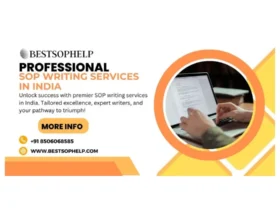Introduction
Decision-making abilities demonstrate your ability to choose between two or more options. After you’ve processed all of the information accessible to you and spoken with the appropriate points of contact in a given scenario, you’ll be ready to make judgments. Overall, it’s critical to develop methods that assist you in making the best decision for the company and make a concerted effort to discover biases that might influence the conclusion.
The Seven Ethical Decision-Making All Professionals Must Take:
-
Take A Moment To Pause, Reflect, And Recognize The Ethical Challenge
Perhaps more than other individuals, you’re used to making snap judgments. You must act as a small-business owner. It’s a talent that you’ve most likely refined via a lot of practice. When it comes to ethical quandaries, though, haste is not a virtue. You’ll need some time to perform a calm, thorough analysis.
-
Go On A Fact-Gathering Assignment
Once you’ve gathered all of the relevant information, both what you already know and need to know to make an educated, sensible decision, your problem should become apparent.
In terms of simplicity and time, this isn’t the most straightforward rule for ethical action. You may even discover that it is a cyclical process, requiring you to obtain one person’s version of a tale, check it, and then return to the first person for elaboration. It would help if you also double-checked the accuracy of the information you’ve gathered and the reliability of the persons you’ve consulted.
Ethical issues have a “funny” way of converting “facts” into “interpretations,” and nuances can skew people’s motives and viewpoints. It takes time to bring them all together. So, resist the desire to establish a timetable for making your ethical decision, as much as you may feel driven to do so. Take advantage of the extra time if you require it. You’ll know when you’ve made “the proper” ethical decision because it will feel right.
-
Be Specific About What You Want To Achieve
In reality, you may have several objectives, both short- and long-term. Or you could be startled to learn that you don’t have any goals at all – that your impulses were triggered by emotion, for example, and that you should avoid becoming involved at all.
You should be able to develop a clear sense of purpose after you have all of the data. It’s crucial, and it may become your mantra if your ethical decision is called into question or challenged, and you must defend it. Meanwhile, a defined objective may act as both a motivator and a lighthouse, directing you toward a solution to your problem.
-
Create A List Of Possibilities
Develop choices for accomplishing your goals once you’ve determined what you want to achieve. Options – plural – are essential because they allow you some flexibility in making decisions. In this manner, the fact that ethical issues aren’t black-and-white helps. Their grey shadings frequently allude to a variety of circumstances.
For the time being, think of as many possibilities as you can, even if you’re not convinced they’ll work. See whether you haven’t neglected any options by speaking with a trusted confidante who knows you well and shares your beliefs.
-
Consider The Implications
If you enjoy writing lists, this ethical conduct guideline should be just up your alley. It would help if you considered the ramifications of each decision once you have them in hand. Then count to three – maybe four – as the ethical implications start to become apparent.
When the alternatives are many, it becomes more difficult. Then the repercussions tend to get more complicated as well. It may take some time to go through all the implications if you’re debating whether a shady method warrants an honourable objective.
-
Make An Ethical Choice
You’re probably leaning heavily toward one course of action at this point. If you’re not, go over the steps again, paying particular attention to step two and the information you’ll discover there.
Making an ethical decision May often lead to philosophical reflections, which is perfectly natural? You could find yourself repeating the Golden Rule, for example. If you’re religious, biblical role models or spiritual affirmations may provide you with validation.
Ethical issues might be psychologically draining, but you should eventually find peace with your decision and the assurance that you’re doing the right thing.
-
Keep An Eye On Things And Make Adjustments As Needed
This last ethical decision-making guideline distinguishes those who want to go through the process and be done from those devoted to making ethical decisions. That will stand up to examination. As a small-business owner, you understand that every move you make will be scrutinized, whether or not it is accompanied by editorial commentary.
The most challenging aspect of monitoring an ethical decision is realizing that it didn’t turn out the way you planned or resulted in unintended repercussions.And it takes a strong person to realize that the only “correct” course of action is to backtrack, rescind the decision, and make a new one. Ironically, this is also an ethical decision – and one. That may earn you even more respect from those who rely on you daily.
Conclusion:
Small-business entrepreneurs may perform the roles of ambassador, mediator, politician, and diplomat, but they’re unlikely to be cast as philosophers. However, nothing like a perplexing ethical difficulty to make you pull back your chair put your feet up on your desk and considers your alternatives. As if you didn’t already know, darkness makes it easier to make decisions but still if you are confused making such crucial decision you can consult online essay help and online essay writing service providers.








Leave a Reply